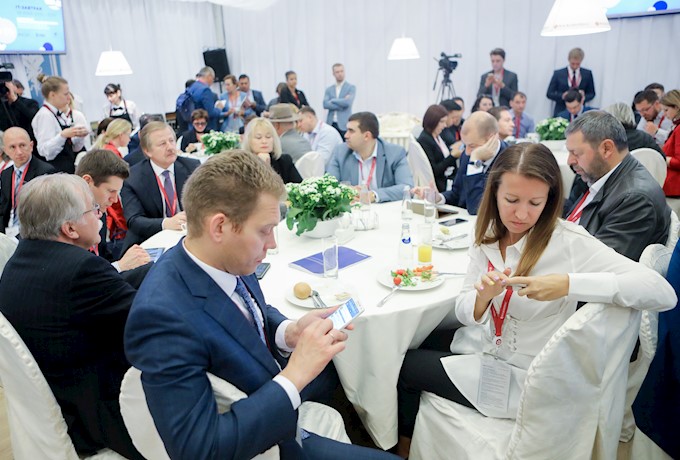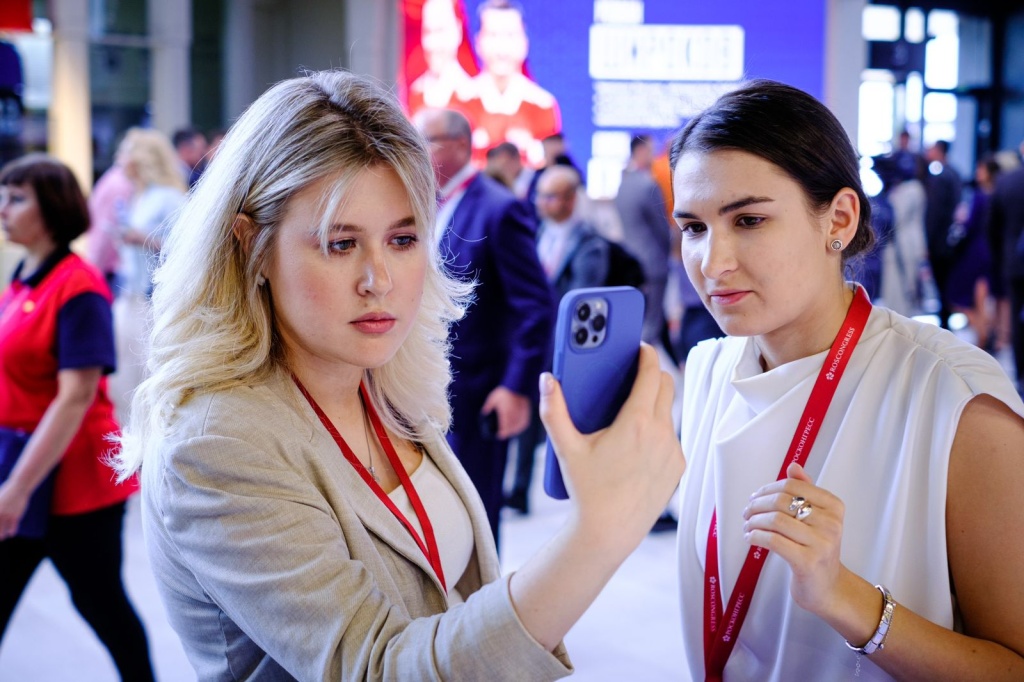
Digital Transformation of Business: International Experience and Russian Practice
A business breakfast for IT industry representatives was held on 26 May, the last day of SPIEF 2018. The moderators were Valentin Makarov, President of Russoft Association, and Sergei Plugotarenko, Director of Russian Association for Electronic Communications (RAEC). The panellists included managers of such companies as Google Inc., Yandex, IBS, Microsoft Rus LLC, Facebook, Sistema, Rostelecom, RVC, Intel Corporation, Kaspersky Lab, and other leading IT companies.
According to the panellists, digital transformation embraces the entire world and is directly related to about 20% of global GDP. This should not be underestimated as it is the way to boost the efficiency and competitiveness of business. Indeed, robotic process automation is rising by 60% a year.
The panellists also pointed out that the global digitalization of our life and introduction of artificial intelligence are creating a new ecosystem. The Internet of things already requires 5G networks.
Creation of new products and introduction of cross-purpose technologies require a new strategy of cooperation with real sector companies. Competence centres must be formed as part of this strategy.
Change management is a very complicated process, so digital transformation demands new approaches and, above all, investment in professional education and regular staff training. The panellists agree that the world is changing very quickly and failure to keep up with global trends means no prospects for development. Before long, they argue, there will be no non-digital businesses left in the world. Time dictates the fullest possible switch to digital outsourcing – and western companies are already effectively using a lot of tools that remain underestimated in Russia.
The digital culture in Russia is currently estimated at 17.5% – such is the percentage of company employees who make active use of digital technology in their work, reported Pavel Ershov, Chief Operating Officer at Microsoft Rus. Digital standards are needed desperately, including open standards, along with use of global practices and creation of new products together with partners. In this respect, it is becoming more important to develop and introduce next-generation antivirus products.
This raises issues of comprehensive security, confidence and technological sovereignty not only with regard to particular companies but at the level of entire countries, as none of them can develop all technologies on their own. Digital transformation is impossible in isolation because this is a global process suggesting use of open source code base and next-generation cloud computing, which in the end will enhance the resilience of Russian IT companies to trade sanctions. In this respect, the panellists cited a proverb: “If you want to run fast, run alone. If you want to run far, run together.”
The participants admitted that, today, the government machine at all levels was unmotivated and not adapted to resolving the problems of the digital economy, and that Russian law in this area lagged far behind global trends. The so-called Yarovaya Law would cost the industry some RUB 4.5 trillion, they estimated. According to the panellists, IT industry experts should definitely be involved in developing government solutions in this sphere.
Wrapping up the business breakfast, the moderators stated that, as the digital transformation was a key issue on Russia’s economic breakthrough agenda, the government should pay maximum attention to it. To this effect, the paradigm of the government’s collaboration with the IT business should move on from prohibitive and defensive to stimulating. “Instead of speaking of the digital economy from each high rostrum, we have to pass and implement specific solutions in this area. In this case, the 5% of Russia’s GDP currently claimed by the digital economy will rise to 10%, and 15%, and 20%. We need and value a dialogue with the government”, Valentin Makarov concluded.








